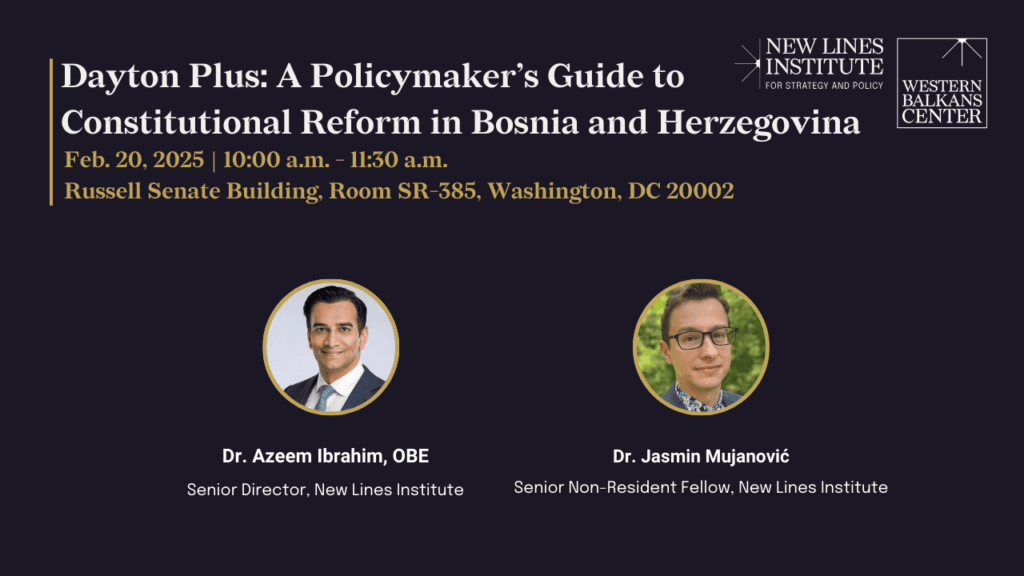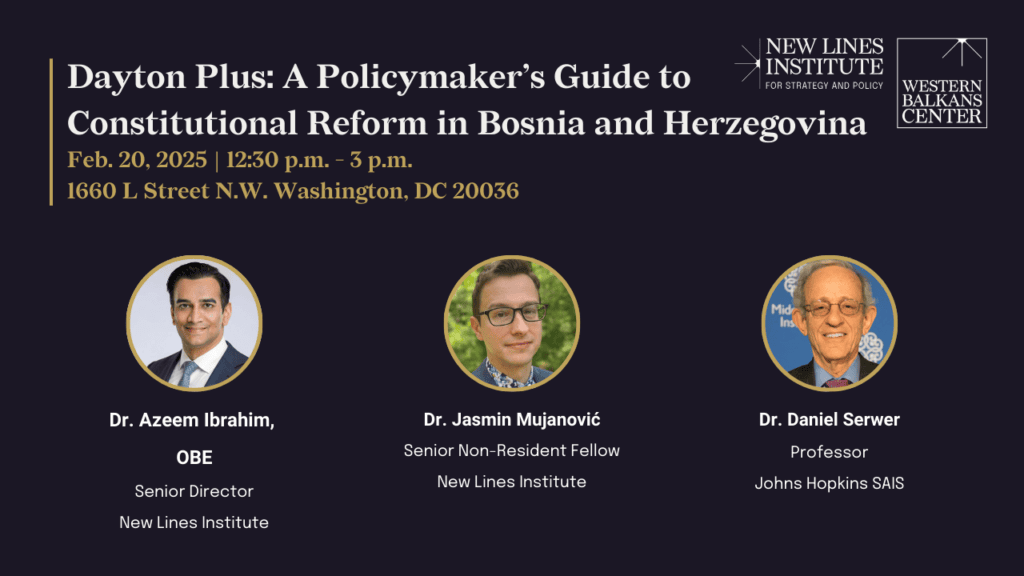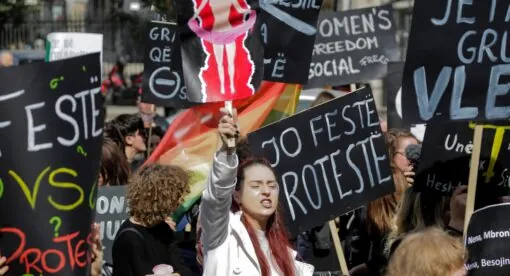

Washington, D.C. — A newly released report, Dayton Plus: A Policymaker’s Guide to Constitutional Reform in Bosnia and Herzegovina, authored by the New Lines Institute Senior Non-Resident Fellow Dr. Jasmin Mujanović, offers a bold blueprint for modernizing Bosnia and Herzegovina’s illiberal constitutional system, which has long entrenched ethnic divisions, fueled political paralysis, and empowered Russian-aligned anti-state actors in the key strategic polity of the Western Balkans. Bosnia and Herzegovina’s democratization is therefore critical both to European security interests in the region and the EU and NATO’s overall posture along its widening eastern flank.
This report provides actionable recommendations to move beyond the discriminatory, sectarian structures enshrined in the Dayton Peace Agreement, which, while ending the 1992-1995 Bosnian War, have since perpetuated decades of instability, fruitlessly consuming the energies of American and European officials amid growing Russian and Chinese threats against the continent. With European security facing its most significant challenge since the Cold War, Dayton Plus underscores how buttressing Bosnia and Herzegovina’s democratic resilience should serve as a model for wider American and European efforts to secure a sustainable peace in Ukraine and elsewhere.
By addressing Bosnia and Herzegovina’s constitutional dysfunction, the report presents a guide to fortifying Europe’s southeastern flank, opening a credible pathway for Sarajevo’s EU and NATO accession, making it an essential resource for policymakers concerned with the continent’s geopolitical future.
For media inquiries, interviews, or to request a copy of the report, please contact [email protected]




